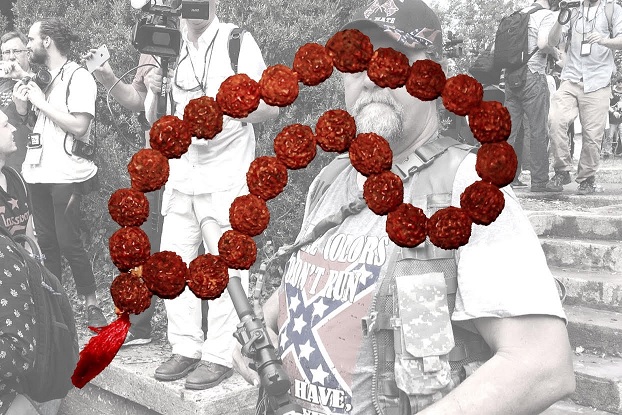
When I was in high school, I visited the Anne Frank House in Amsterdam. Deeply affected by her story, my friend and I discussed whether we would play our part and stand up against it if something like the Holocaust happened again. My friend was confident that he would stand up. I wanted to say the same, but I felt unsure. There was so much injustice around the world, but I was doing nothing. I concluded that there was little I could practically do, beyond donations, volunteering, and increasing awareness. I’d look at problems far away, and all I could think was these weren’t my communities, that these weren’t my people.
“Charlottesville, Virginia is about forty minutes from my hometown. This is my community.”
Charlottesville, Virginia is about forty minutes from my hometown. I spent a lot of time there as kid, watching classical Indian music concerts with my parents. When I heard there was going to be another White supremacist/alt-right rally in Charlottesville, I knew this was the time to act. This is my community. These are my people.
I read the news the night before, heard about their attacks on the UVA campus, but I wasn’t going to hide. So I typed “Emancipation Park, Charlottesville” into my GPS and started driving, wearing my rudra mala, a symbol of strength and heritage, from a culture these people saw as inferior.
As I got closer, I started looking for a place to park. Opposing crowds walked by. The police were trying hard to prevent interaction between the alt-right/White supremacist activists and the Antifa (anti-fascist) leftist groups intending to disrupt the rally.
“I started driving, wearing my rudra mala, a symbol of strength and heritage.”
At a stoplight, I looked out the window to see an alt-right leader dressed in a suit. He tried to look inconspicuous with a Nazi sign next to him. As we looked at each other, he lowered his head and smiled, as if he hoped I would recognize his humanity for a moment. As I drove on, a group of 20 people marched on the sidewalk carrying Confederate flags. I made eye contact with the leader and gave him a smirk; he smirked back with a victorious look in his eyes, as if he had won some battle I didn’t even realize I was fighting.
I parked my car and walked downtown. I saw churches and organizations with protests on their premises. I asked where everyone was and they said a few blocks down, and urged me to be careful. As I kept walking, I saw several people with red eyes and white faces. I realized that these people had been maced, and had used milk to wash out their eyes.
There were rows of police in full riot gear protecting the streets. I got closer to the epicenter of the protests and suddenly, I heard screaming and saw people running away from the direction I was headed.
“I read the news the night before, heard about their attacks on the UVA campus, but I wasn’t going to hide.”
I saw a car which had driven into the crowd and backed up quickly — and then saw people lying on the ground up ahead. The police and ambulance came by soon. The entire crowd was shaken, many in tears, many fearful. The majority of the alt-right group had moved to another park further away but a few remained just to pick fights. As the police presence picked up and emergency care handled those injured, the majority of people dispersed.
Many people questioned why I went, asking how impactful it would be, or why I would risk getting hurt. But for me there’s no question: there were people there of all ages, genders, and races, simply to exude a collective energy of love.
We were defending our community. As a Desi American, and proud Virginian, it is my duty to represent my people and fight for my ideals. I may have been one of few Desi faces in a crowd of liberal counter-protestors, but I was there, I was connected to that energy, and I was doing something to protect the country my parents fought to make home.
“We were defending our community.”
The Desi American story does not just stop at economic success. We need to feel connected and vested in a community that is full of mostly loving, compassionate people.
My story may have started with just attending this tragic event, but is just the beginning. I don’t know what form my activism will take but I am determined to move beyond just Facebook likes or retweets, and defend my rights and that of those around me.
* * *
Rahul Menon is a data analyst, musician, and spiritual seeker from Richmond, VA. He’s a percussionist who enjoys playing both the drum set and tabla. He is also currently producing an album of hip hop beats influenced by classical Indian devotional music.












